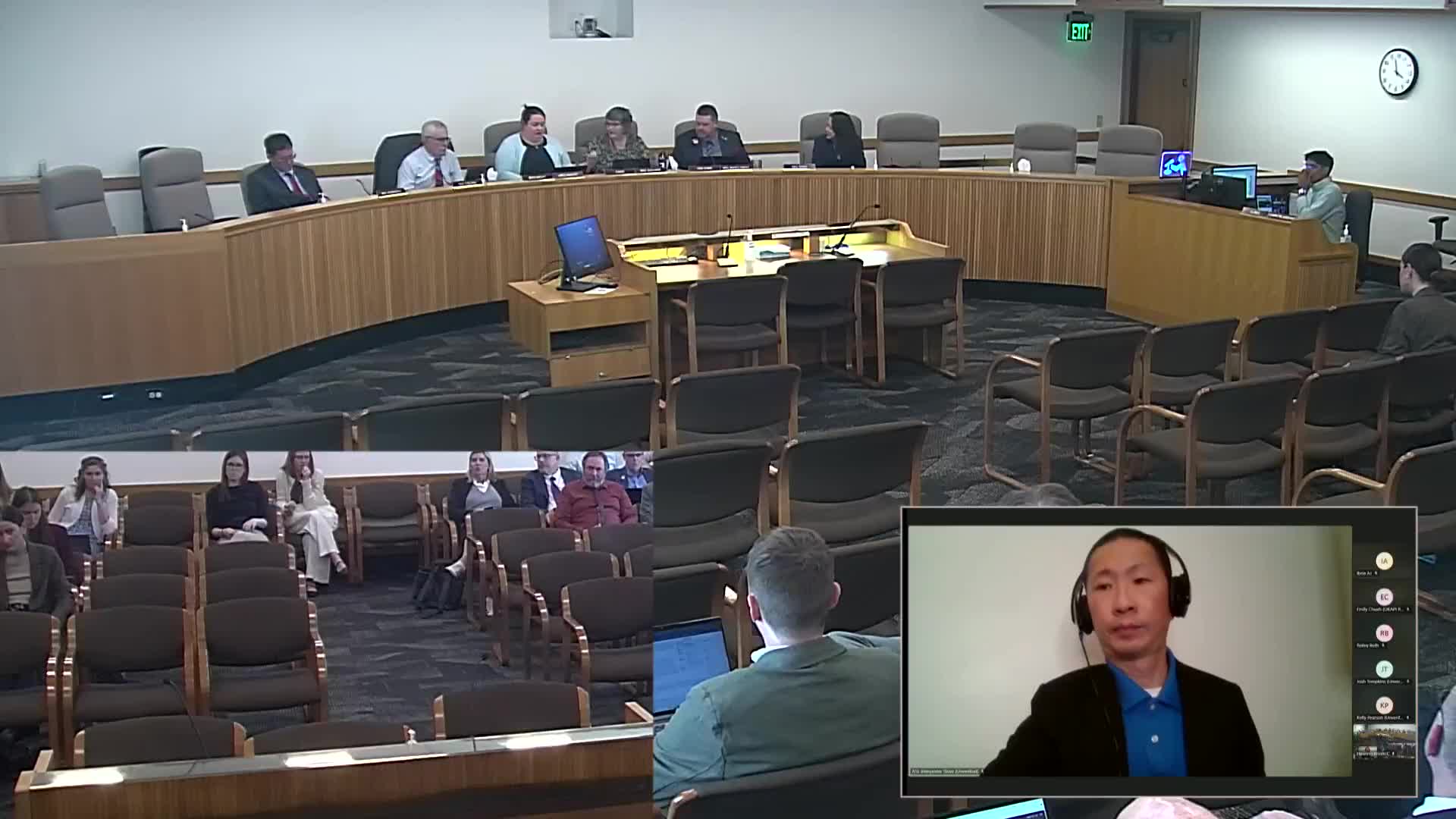Panelists urge stronger incentives and infrastructure to scale refillable beverage systems in Oregon
Get AI-powered insights, summaries, and transcripts
Subscribe
Summary
An informational hearing May 5 featured producers, reusable‑service startups, recyclers, labor and environmental advocates who said Oregon can expand refillable and reusable beverage containers but needs investments, standardized washable labels, domestic washing capacity and better alignment with the Recycling Modernization Act.
The Senate Committee on Energy and Environment held an informational meeting May 5 on refillable and reusable products, hearing from businesses, the Oregon Beverage Recycling Cooperative (OBRC), the Department of Environmental Quality and environmental and labor organizations.
Adam Rak, co‑founder of Ravino Bottles, said his company has recruited wineries and breweries to a pooled, standardized bottle system and has procured specialized washing equipment that can clean 5,000 bottles per hour. Rak noted challenges under Oregon’s emerging Extended Producer Responsibility framework: wine is a covered product under the Recycling Modernization Act (RMA) but existing deposit/collection structures and EPR program design may not support deposit‑style reuse without additional alignment. Rak said his firm expects to have a domestic wash facility operating in four to six months and emphasized that a mature pooled system and life‑cycle analysis (LCA) will be needed to secure EPR discounts intended for lower‑impact packaging.
Emily Chu of Okapi Reusables described a commercial reusable cup‑share program that works with small cafes using a mobile app and QR codes; she said Okapi’s return rates are about 97 percent and the model avoids large up‑front costs for independent businesses. Devin Morales of OBRC summarized the cooperative’s statewide refillable glass program and said OBRC currently ships bottles to a wash line in British Columbia, though the group hopes to establish domestic washing capacity. Morales said standardized washable labels were critical to a high success wash (a recent truckload had a 97 percent success rate when partners used wash‑compatible labels).
Brewery representatives, including Matt Swiret of Double Mountain Brewing, described decades of experience with refillable bottles and said the system provided supply resilience during pandemic supply chain disruptions. The Glass Packaging Institute’s Scott DeFife said Oregon glass plants make glass with high recycled content and that refillable systems can succeed if the beverage and distribution industries and policymakers coordinate to create scale and shared infrastructure.
DEQ legislative analyst Abby Bediras described the MIRROR program (Material Impact Reduction and Reuse in Oregon) created under the Recycling Modernization Act (Senate Bill 582). DEQ said MIRROR will distribute a share of producer fees to projects that reduce environmental impacts of covered products; DEQ expects the first funding cycle about a year from now, with funds available for capital equipment, washing hubs and pilot reuse programs. Bediras said the program funding is the lesser of $15 million or 10 percent of annual expenditures of the producer responsibility organization and will ramp in subsequent years.
Environmental groups and researchers urged policy ambition. Sam Pierce of The Story of Stuff Project summarized modeling that suggests substantial plastic bottle reductions and job gains are possible with reuse targets. Dr. Anya Brandon of Ocean Conservancy argued reuse is necessary to reduce plastic pollution and cautioned that LCA methods and program rules should not unintentionally disadvantage reusable glass.
Panelists urged several practical steps: create incentives (not just penalties) for reuse, standardize washable labels and bottle specifications, invest in domestic washing infrastructure, align EPR implementation with bottle‑bill/OBRC systems, and use DEQ MIRROR funds to seed washing hubs and durable serviceware projects. The committee heard widespread support for reuse as an environmental and job‑creating strategy, tempered by the need for coordinated logistics, consumer education and short‑term financing for equipment and collection systems.
The informational meeting concluded with committee members thanking witnesses and closing the session.
